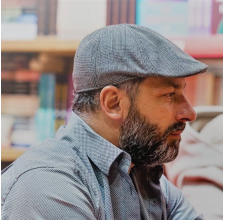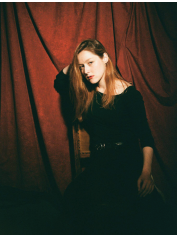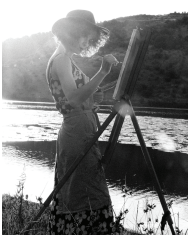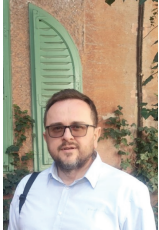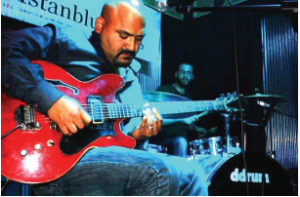Aleksandra Savanović (Novi Sad,
1986) is writer and researcher. She
has published two critically acclaimed
novels (Deseti život, Kontrast, 2018
and Novo Sada, Partizanska knjiga,
2022), a number of short stories,
and a wide range of essays, articles
and popular commentary. In her
research work she focuses on postcapitalist
economic paradigms and
the contemporary transformations of
labour, state and citizenship.
1. Our surroundings shape the way we think (and feel). People tend to become what they’ve
been conditioned and trained to become. Identity is not some natural fact, some quality that
we were born with, it exists only in a social context, one is rendered a person in a concrete
socio-economic system, a concrete local environment, a concrete family, in concrete
relationships. To me the recognition of this conditioning, of its often-coercive nature, seems a
necessary prerequisite for any possibility of free thought, and therefore of creation. We don’t
exist in a vacuum, so we cannot create in a vacuum either, we always come from somewhere.
But to create we also need to be aware that there is elsewhere, not only in the material realm,
but maybe more importantly in the realm of imagination, that things can be different.
2. I try to write beyond the borders of my immediate surroundings, of town(s) or country(s)
where I live, or have lived in. They all play a role; they constitute a starting point from which
I can reflect on universal questions, tendencies, phenomena. I am specifically interested in
moments, events, experiences through which “all that it is solid melts into air”, through
which our perception of reality, of normality and normativity, is challenged.
3. Istanbul is a city of endless layers, of countless worlds, like any other city I guess, but
multiplied with millions upon millions of its inhabitants, with sediment upon sediment of its
long history. It is as wide as it is dense, as in-your-face as it is out-of-reach. It is crowded,
annoying, flooded by tourists. I was lucky to have resided in a vibrant Kadıköy
neighborhood, with its laid-back, welcoming and cozy atmosphere, from where the European
side of the city is just one ferry ride away (the fact that ferries are part of the regular public
transport was definitely my favorite thing about the city). Thanks to Kalem, I had a chance to
read several novels that take Istanbul as one of their main characters, one of them being
“Istanbul, Istanbul” by Burhan Sönmez. In it, Sönmez, that is one of his characters,
juxtaposes Istanbul from the old stories with Istanbul as it is today, irreversibly altered by
modernity and progress (and all that comes with it). People love the story of old Istanbul, and
with the help of this love they manage to forget the present one. “Living and dying was the
same thing for them,” he says of Istanbul dwellers, “whereas the past was infinitive”. I very
much liked this description.
4. That is quite simple, I write because I need to, because it gives me pleasure and because I
wish to say something. In a world which constantly makes us feel impotent, helpless and
mute, which leaves us at the mercy of tides beyond our control (be it the invisible hand of the
market or very visible hands of our inhuman political leaders), I hold on to writing as means
of exercising agency, fighting personal feelings of depression and anxiety and playing part,
no matter how small, in a struggle for a different and better world. For me writing is
uncomfortable but comforting.



